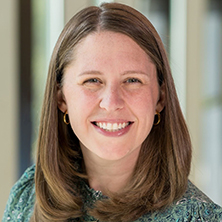
Nicole Hansen , Ph.D.
Associate Professor
Department of Educational Studies
(973) 313-6033
Email
Jubilee Hall
Room 436
Nicole Hansen, Ph.D.
Associate Professor
Department of Educational Studies

